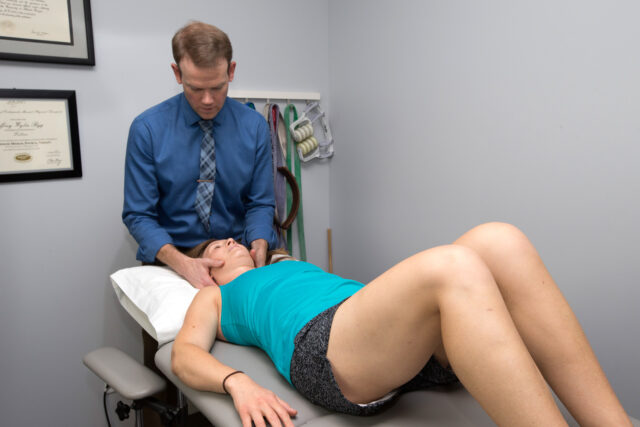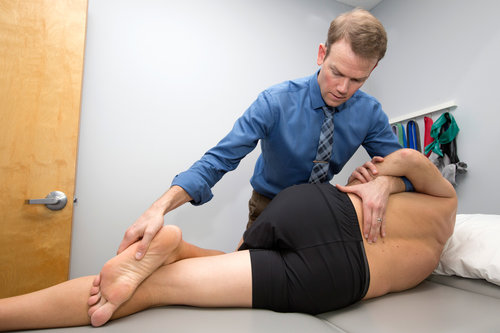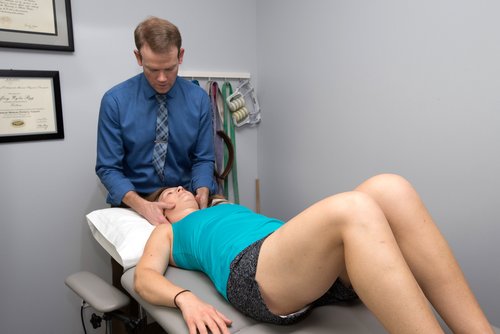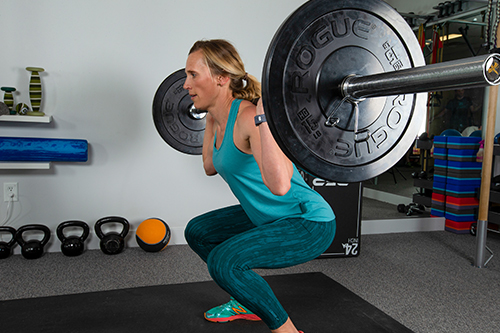
Physical Therapy for Neck Pain
Neck pain can affect your general quality of life, your productivity at work, and even your relationships. Whether it’s the result of poor posture, muscle strain, underlying medical conditions, or traumatic injuries, neck pain can be a persistent and debilitating issue.
While there are many approaches to treating neck pain, physical therapy has proven to be one of the most effective treatment methods. Mend Colorado offers a unique approach to the diagnosis and intervention of this challenge. Our expert clinicians are well-versed in neck physical therapy and provide a host of treatments that can provide lasting relief, from dry needling to spinal manipulation.
Understanding Neck Pain: Causes and More
Neck pain can manifest as a persistent ache or a stabbing pain in your cervical spine. It can range from mild to severe and may be accompanied by stiffness, decreased range of motion, headaches, or muscle spasms. Severe cases report shooting pain that travels from the neck to the shoulders or arms and can sometimes cause numbness or a feeling of numbness in the upper body.
Common Causes of Neck Pain
- Mental Stress: Your body reacts to emotional tension by tightening your muscles in readiness to fight or flight. While the effects of tensed muscles are subtle and cannot be immediately felt, prolonged psychological strain can lead to prolonged muscle tension, resulting in pain. Stress also lowers your immune and pain threshold, heightening your pain sensitivity.
- Poor Posture: Hunching over a work desk, computer, or tablet can lead to a misalignment of vertebrae in your neck area. This malposition puts pressure on the disks, joints, and nerves around this area. Holding your phone between your shoulder and ear or carrying heavy bags on one shoulder can also contribute to bad posture by putting uneven weight distribution around the neck area.
- Injury: Damaged muscles, ligaments, discs, and joints often lead to neck pain. Major causes of this damage include falls, car accidents, and physical altercations. Severe trauma, such as a fall from a height or a high-speed collision, can cause fractures or dislocations of the vertebrae in the neck. These injuries can damage the spinal cord or nerves, leading to neck pain, neurological deficits, and potentially life-threatening complications.
- Underlying Health Conditions: Osteoarthritis, cervical spondylosis, and degenerative disc disease can lead to wear and tear on the structures of the neck, causing inflammation. Other conditions that can cause neck pain include pinched nerves, cervical stenosis, rheumatoid arthritis, and fibromyalgia.
Diagnosing Neck Pain
You should seek neck physical therapy treatment if your neck pain persists for more than a few days. The diagnostic process will begin with a thorough examination to determine if you have any underlying medical conditions likely to cause neck pain. The provider will also ask about your occupation and lifestyle to see if there are any additional factors that could be contributing to the pain.
During the appointment, your doctor will examine your neck area, shoulders, and overall posture, as well. You can also expect to undergo a range of motion tests, which will check how well you can move your head around.
If your medical history review and physical exam do not reveal any issues, your provider may proceed with the following:
- Imaging studies: Internal images of the affected areas are taken and then evaluated by specialists. These include X-rays, CT and MRI scans, and ultrasounds.
- Electrodiagnostic Testing: Doctors use this method to assess the velocity of electrical signals traveling through nerves, providing insights into potential nerve impairment locations.
Preventing Neck Pain
The following methods can help you prevent neck pain:
- Maintain a good posture.
- Incorporate neck stretches and strengthening exercises into your daily routine to improve flexibility and muscle strength.
- When lifting heavy objects, use your legs rather than your back to reduce strain on your neck and spine, and avoid twisting your neck while lifting.
- Practice stress-reduction techniques such as deep breathing, meditation, or mindfulness to reduce neck and upper body tension.
- Use a supportive pillow that promotes proper neck alignment while sleeping.
When to Seek Neck Pain Physical Therapy
Seek neck physical therapy treatment if the symptoms are severe, persistent, or accompanied by radiating pain, numbness, or weakness in the arms. Also, consult a healthcare professional if neck stiffness, recent trauma, or headaches persist.
Other concerning signs include fever, swelling, progressive symptoms, or a history of cancer. It’s crucial to address these symptoms promptly to determine the underlying cause and receive appropriate treatment to alleviate discomfort and prevent potential complications.
Our Approach to Neck Pain Therapy

At Mend Colorado, we take a highly individualized approach to treating neck pain. Our process begins with a thorough initial evaluation, during which our skilled physical therapists assess your condition, medical history, and personal goals. This evaluation forms the foundation of your personalized treatment plan, ensuring that each aspect is tailored to meet your specific needs.
Our treatment approach encompasses a variety of modalities carefully selected to address the underlying causes of your neck pain effectively. These may include spinal manipulation, dry needling, neck strengthening exercises, and general strengthening programs. The precise combination of modalities utilized in your treatment plan is determined based on the findings from your evaluation and ongoing progress assessments.
What to Expect from Neck Physical Therapy Treatment
At Mend Colorado, we believe in setting realistic expectations for your physical therapy journey. It’s important to understand that improvement takes time and commitment. Active participation in prescribed exercises and adherence to your treatment plan are crucial for success. While progress may vary from person to person, our team will work closely with you to help you achieve your goals.
The duration of your physical therapy treatment can vary depending on individual factors such as the severity of your condition, your overall health, and your response to treatment. During this time, we’ll closely monitor your progress and adjust your treatment plan as needed to ensure optimal results.
Frequently Asked Questions
Physical therapy is suitable for mild to moderate neck pain, but severe cases or those with accompanying symptoms may require consultation with a healthcare professional. If neck pain affects daily activities, work, or recreation, physical therapy can offer tailored treatment plans to address limitations and goals.
We treat all forms of neck pain including acute neck pain, chronic neck pain, radicular pain, mechanical neck pain, whiplash-associated disorders, and cervicogenic headaches, among others.
PT appointments at Mend Colorado are an easy affair, and we only ask for relevant medical records that give us insight into your medical history. You could also bring your pain diary if you keep one, but it is not mandatory. Finally, we ask that you wear loose comfortable clothes that give our team easy access to your neck area.




